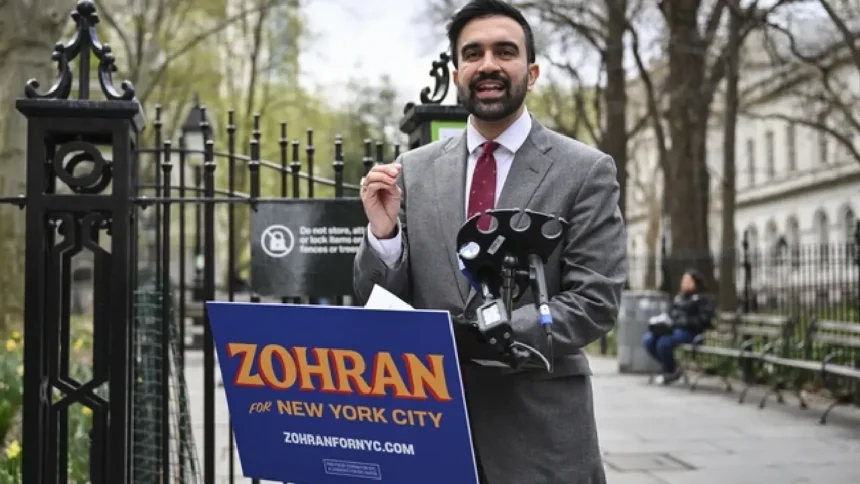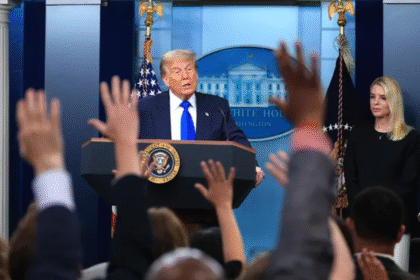As debates over economic inequality and social justice grow louder in the United States, one political figure is working to redefine what “democratic socialism” means in the modern American context. New York City politician Zohran Mamdani, a self-described democratic socialist, says his vision is rooted not in ideology or revolution, but in the simple idea that everyone deserves a life of dignity.
Mamdani’s approach, outlined in recent interviews and speeches, aims to move beyond the stereotypes surrounding the term “socialism.” He argues that democratic socialism is not about abolishing private property or government control of all industries, but about ensuring that economic and political systems work for everyone not just the wealthy few.
A Movement About Dignity and Equality
For Mamdani, democratic socialism begins with a moral question: what does it mean for every person to live with dignity? He points to basic needs housing, healthcare, education, and transportation as fundamental rights that should not depend on income or privilege.
He often cites the idea that democracy should extend beyond the ballot box and into the economy itself. In his words, a society cannot be truly democratic if economic power is concentrated in the hands of a few. Democratic socialism, then, is about giving ordinary people more control over their lives and ensuring that the economy serves human needs rather than corporate profits.
Mamdani’s proposals reflect this philosophy. He has advocated for rent freezes in stabilized housing, fare-free public buses, and even the creation of publicly owned grocery stores that sell food at wholesale prices. He also supports raising the minimum wage to thirty dollars an hour by 2030, arguing that no one who works full time should struggle to afford the basics of life.
These ideas, he insists, are not radical but practical designed to restore fairness in a system that he believes has been tilted toward wealth and power for far too long.
Funding and Economic Vision
Critics often question how such sweeping social programs would be paid for. Mamdani’s answer is straightforward: through progressive taxation and a reprioritization of government spending. He argues that the wealthiest Americans and large corporations have benefited immensely from decades of tax breaks and loopholes, while public services have suffered.
By restoring balance through higher taxes on the ultra-rich, he says, society can invest in people — creating an economy that grows from the bottom up instead of the top down. This redistribution, he believes, is essential for long-term stability, not only for moral reasons but also for economic sustainability.
He emphasizes that his version of democratic socialism does not seek to end capitalism entirely. Rather, it seeks to place democratic limits on its excesses making sure that capitalism works for everyone, not just those at the top. It’s a system where workers, communities, and public institutions share in decision-making, and where profit is no longer the only measure of success.
Rejecting Misconceptions
Mamdani also makes a clear distinction between democratic socialism and historical forms of authoritarian socialism seen in the twentieth century. He rejects comparisons to communist regimes, saying that true democratic socialism values freedom, pluralism, and individual rights.
He argues that the label “socialist” has often been weaponized in American politics, used to stoke fear and misunderstanding. In reality, many of the policies associated with democratic socialism universal healthcare, affordable education, and worker protections already exist in parts of Europe and are broadly popular among voters when described without the “socialist” label.
His critics, however, warn that such policies could expand government power and discourage private investment. They argue that even well-intentioned socialist reforms risk slowing innovation and economic growth. Mamdani counters that what truly stifles innovation is poverty, insecurity, and inequality conditions that prevent millions from realizing their potential.
A Shift in American Politics
Mamdani’s rise reflects a broader shift within American politics. Over the past decade, public opinion among younger voters has moved toward more progressive and redistributive policies. Figures like Bernie Sanders and Alexandria Ocasio-Cortez helped bring democratic socialism into mainstream conversation, but Mamdani represents a new generation one focused on turning those ideals into actionable governance.
Analysts note that his success in winning elections shows that the stigma around the word “socialism” is fading. To many Americans, especially younger ones, it simply means fairness, equality, and collective responsibility. Yet for others, it remains a deeply divisive term a symbol of government overreach and failed economic experiments.
The challenge for Mamdani and those who share his vision is to prove that democratic socialism can work in practice not as a utopian dream, but as a realistic path toward a fairer society.
The Future of Democratic Socialism
Whether Mamdani’s ideas gain lasting traction will depend on their implementation and results. His policies will face obstacles: budget limits, political opposition, and legal challenges. But his message that dignity should be the foundation of democracy continues to resonate in a nation grappling with deep inequality and growing economic anxiety.
For Mamdani, democratic socialism is not about ideology but humanity. It’s about building a society where no one is disposable, and where democracy doesn’t end when the polls close it continues in the workplace, in the economy, and in everyday life.











